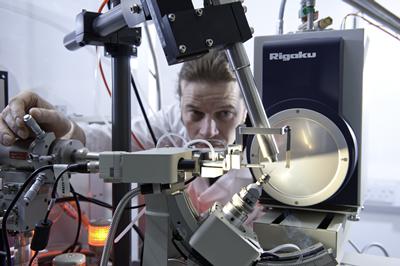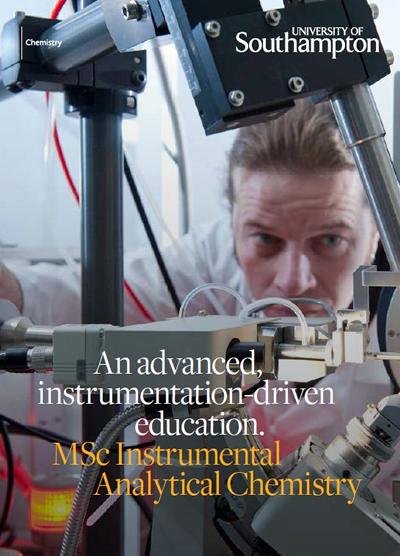Mastering complex analytical techniques

A new taught master’s degree will enable graduates to develop the vital specialist knowledge and hands-on practical skills for a successful career in analytical chemistry.
The MSc in Instrumental Analytical Chemistry concentrates on applying the three main analytical technologies to examine materials at the molecular scale:
- X-ray diffraction
- Mass spectrometry
- Nuclear magnetic resonance (NMR) spectroscopy
Scientists working in exciting fields such as drug discovery and the development of new green fuels need to understand the atomic structure of individual molecules and how they interact. Sophisticated analyses of their properties and formulation are vital. This constantly evolving branch of science, that involves biologists, engineers, physicists and medical researchers, could hold the key to solving many global problems.
Chemistry at Southampton has invested £5.65 million in state-of-the-art analytical equipment since 2010. Facilities include the world's most powerful X-ray diffractometer at the University's National Crystallography Service. Leading equipment manufacturer Rigaku has also donated a £100,000 diffractometer, solely for use in a dedicated educational laboratory.
Senior lecturer Dr Simon Coles expects there will be plenty of opportunities for talented graduates from this MSc programme: "We believe this qualification will enable graduates to embark on rewarding managerial and scientific careers both in industry and academia. Around the world, new universities are being established and innovative companies are being launched. They are investing in the latest analytical equipment and will want to recruit people who know how to get the most out of it."
The master's degree, which combines academic rigour with practical sessions on state-of-the-art equipment, includes both group and individual research projects and sessions on how to run a commercial analytical laboratory and set up scientific business enterprises.
Links to external websites
The University cannot accept responsibility for external websites.
This qualification will enable graduates to embark on rewarding managerial and scientific careers both in industry and academia
